Homeschooling with backyard chickens revolutionizes education by blending hands-on experiences with academic concepts. This approach nurtures mind and soul, fostering a deep connection with nature and instilling responsibility.
Integrating backyard chickens into your homeschool curriculum provides a unique mix of practical life skills and academic enrichment.
From studying the life cycle of a chicken to calculating the economics of egg production, these feathered friends offer endless learning opportunities.
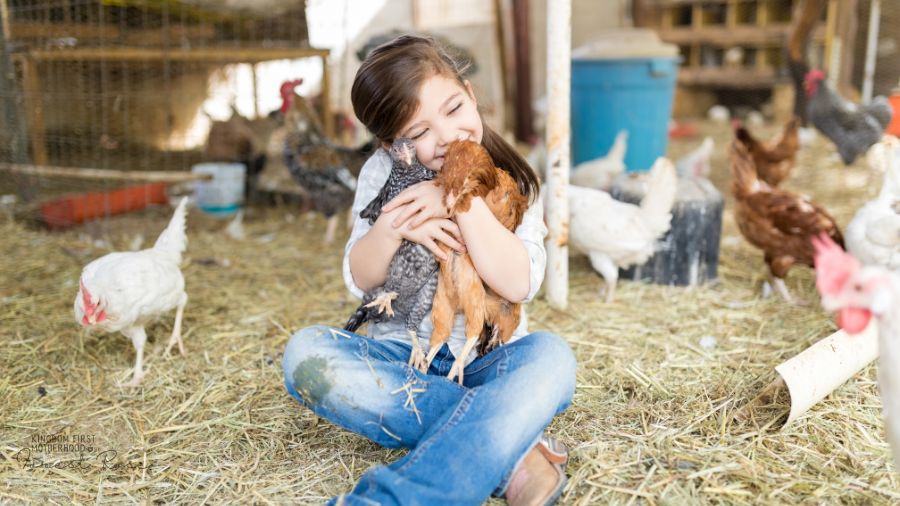
Let’s explore how chickens can become teachers in your homeschool journey.
Contents
Science Adventures with Chickens
Explore the fascinating world of chickens by studying their anatomy and life cycle.
Use a chick starter kit to get everything you need to raise healthy chicks. With this kit, you can observe the development of embryos through candling eggs or track the growth of chicks into adult hens.
These hands-on experiences bring biology lessons to life and provide a solid foundation for understanding animal development.
As you nurture growing chicks, it’s equally important to focus on their nutrition, creating balanced diets that support their health and egg production. This practical lesson in animal nutrition mirrors human dietary needs and healthy eating habits, showing the importance of balanced food intake.
To maintain these optimal conditions, kids can monitor environmental factors and adjust them to keep their chickens thriving, providing practical insights into maintaining healthy living conditions.
Design a coop that meets their environmental needs, keeping them in optimal conditions. Discuss the importance of ventilation, cleanliness, and space to prevent diseases.
Observe and document behaviors like dust bathing, foraging, and pecking order dynamics. Discuss how these behaviors are adaptations that help chickens survive and thrive in their environments.
This exploration into bird behavior deepens children’s understanding of animal welfare and ecosystem roles.
Mathematical Egg-splorations
Raising backyard chickens can be a great way to teach children various math concepts. Here are some examples of math lessons that can be learned from chickens:
Chicken Math
- Addition, subtraction, multiplication, and division: Children practice these math operations by solving problems to find the correct number of chickens. For example:
-
- How many chickens are in the coop? If one runs away, how many are left?
- If we have 3 chickens and buy 5 more, how many do we have now? If we have 14 eggs and break 6, how many are left?
- If we have 4 chickens and divide 12 strawberries among them, how many strawberries will each chicken get?
- Percentage: If 25% of 12 eggs hatch, how many chicks will a hen have?
Count Your Chickens
- Cooperative game: Players work together to return a set number of chicken tokens to the coop by counting the spaces they move on the board.
- Counting skills: Players practice counting by moving the required number of spaces and returning the corresponding number of chicken tokens.
These activities can help children develop essential math skills while having fun with backyard chickens or playing educational games.
Designing and Measuring the Coop
Transform math into a hands-on project by planning and building a chicken coop. Measure dimensions precisely, calculate area and volume, and ensure the space meets the specific needs of your flock.
This task integrates geometry and spatial reasoning with practical problem-solving. For instance, calculate the floor area required for a given number of chickens, and use those measurements to create a detailed coop layout.
Calculating Food Requirements
Determine the precise amount of feed your flock needs based on size and dietary requirements. Budget for feed expenses and compare costs over different periods.
For example, compute the weekly feed consumption per chicken and scale it up for your entire flock.
This exercise combines math with economic principles, teaching budgeting and cost management effectively.
Chicken Tales and Literature
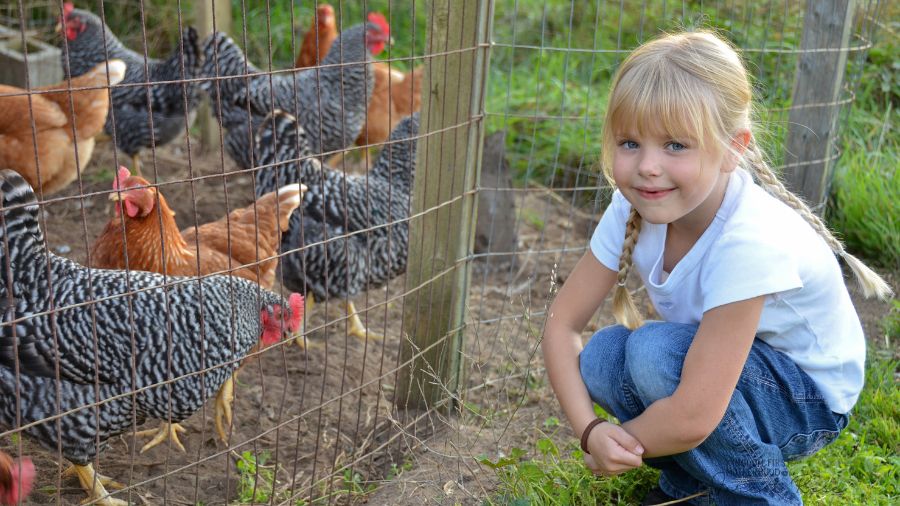
Reading and Writing Adventures with Chickens
Immerse children in the world of chickens through literature. Encourage them to read chicken-themed books, from classic stories like “The Little Red Hen” to nonfiction texts about poultry care and farming.
These readings enhance literacy, spark creativity and foster a deeper understanding of responsibility and nature.
Children can then write their chicken stories, blending imagination with newfound knowledge, and share their tales to develop narrative skills.
Exploring Chicken Breeds
Dive into the diversity of chicken breeds through research projects. Assign each child a breed to explore, focusing on its history, unique characteristics, and role in agriculture. For instance, they might investigate the hardy Rhode Island Red or the White Wyandotte.
Encourage them to include visual aids, such as photos or drawings, to enhance their presentations.
| Journal Daily Observations: Encourage kids to keep a daily journal documenting chicken behavior, weather conditions, and any changes in egg production to identify patterns and learn record-keeping. |
Building a Safe Chicken Coop for Kids
Building a chicken coop can be a fun and educational activity for children. Adult supervision is essential when they are around chicken flocks.
According to the CDC, young children are especially susceptible to severe Salmonella infections. It’s crucial to design the coop with safety features that allow kids to interact with and care for the chickens without direct contact, minimizing the risk of Salmonella exposure.
To further reduce the risk, always wash your hands immediately after handling poultry, their eggs, or anything in their environment. This simple step is key to preventing illness.
By combining these safety measures with proper hygiene practices, maintaining a chicken coop becomes a rewarding and educational adventure for young learners. This project teaches children about animal care and instills a sense of responsibility and hygiene.
Life Skills Development
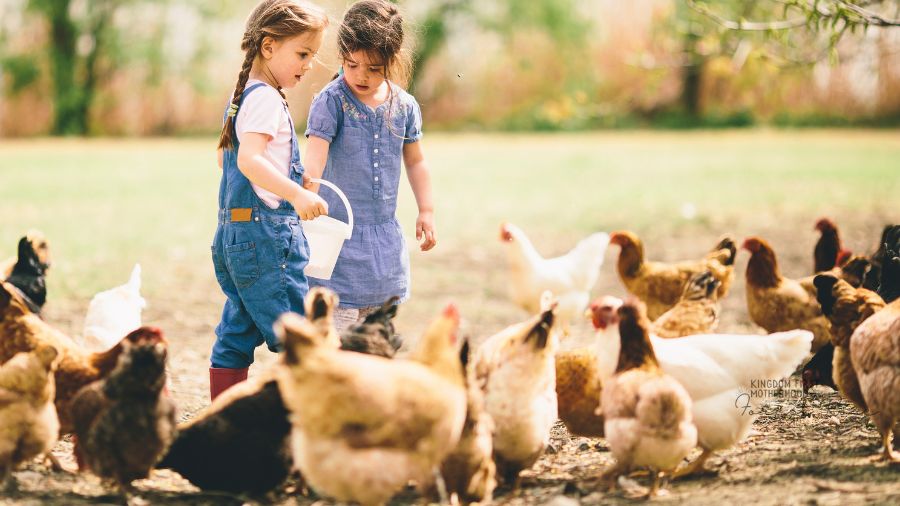
Embracing Responsibility
Caring for chickens requires daily commitment, instilling a strong sense of responsibility in children. Through managing the needs of their flock, they engage in consistent care routines that teach accountability and foster empathy.
- Daily Routines: Children take charge of:
- Feeding and watering the chickens
- Cleaning the coop
- Collecting eggs
- Developing Life Skills
- Accountability: Regular tasks ensure children understand the importance of following through on their responsibilities.
- Empathy: Caring for animals encourages compassion and understanding towards living creatures.
- Ownership: Children gain a sense of pride and satisfaction from nurturing and taking care of their flock.
Each day spent caring for the chickens deepens their sense of ownership and the joy that comes from nurturing living beings.
Mastering Problem-solving
Managing a chicken coop brings real-world challenges, from defending against predators to maintaining flock health.
Encourage children to tackle these problems head-on and devise solutions, such as reinforcing the coop to keep out raccoons or adjusting diets to improve chicken wellness.
These experiences enhance critical thinking and practical problem-solving skills, preparing them to handle unexpected issues confidently.
Exploring Entrepreneurship
Selling eggs or composted manure offers children a hands-on introduction to business. They learn essential skills like pricing, marketing, and customer service.
For example, they can set up a small stand to sell eggs or create flyers to attract neighbors.
Through these activities, children gain entrepreneurial insights that can spark a lifelong interest in business and financial management.
Practicing Sustainability
Backyard chickens connect children to sustainable living practices. They see firsthand the benefits of composting chicken manure and recycling food scraps, turning waste into valuable resources.
This direct involvement with sustainability promotes eco-friendly habits that benefit the environment and the community.
Children learn how small actions, like reducing waste and using organic fertilizers, contribute to a healthier planet.
| Community Outreach: Organize a small community event or presentation where children can share their knowledge about chicken care, fostering public speaking skills and community involvement. |
Homeschooling Takeaways
Homeschooling with backyard chickens offers a dynamic and enriching educational experience. It combines academic learning with life skills, responsibility, and a deep appreciation for nature.
This hands-on approach engages children in ways that traditional classroom settings often cannot. If you’re ready to embark on this educational adventure, backyard chickens could be the perfect addition to your homeschool curriculum.
Explore the resources available, connect with other homeschooling families, and watch your children flourish as they learn with their feathered friends.
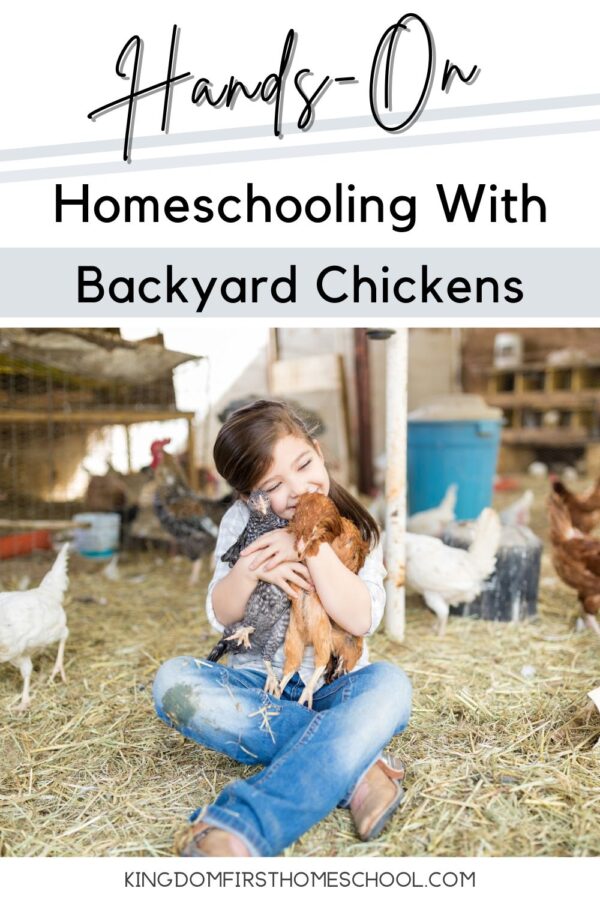
For more homeschooling inspiration, tips and encouragement, make sure to follow KFH on Facebook, Pinterest, Instagram and Twitter, and subscribe to our Newsletter for some FREE GOODIES!
Forest Rose is a God Loving, Blessed Wife, & Mama to 3 girls. She’s passionate about lifting moms out of the trenches that are discouraged, overwhelmed, or feeling alone or isolated. Her hope is to point them to Christ and equip them to rise up with a newfound hope and joy within, that He alone can provide. Besides blogging, she also loves to create printables!



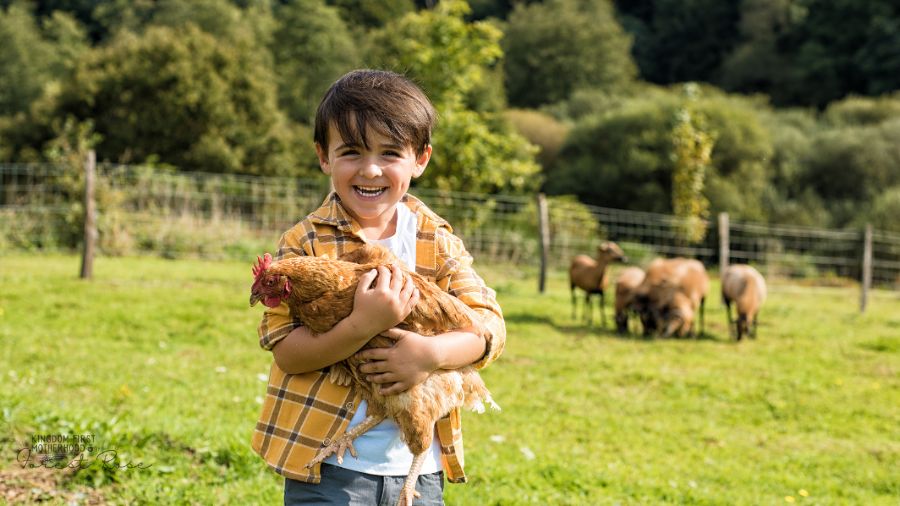

Leave a Reply